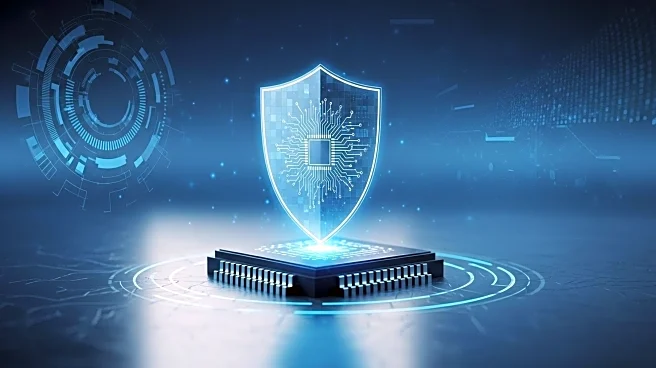What is the story about?
What's Happening?
The Dutch government has taken control of Nexperia, a Chinese-owned chipmaker, citing serious administrative shortcomings that could threaten technological knowledge and capacity in the Netherlands and Europe. Nexperia, headquartered in Nijmegen, has been under the control of Wingtech since 2019. The government intervened on September 30 to ensure the continuity and safeguarding of crucial technological assets. This move is part of a broader trend where regions are seeking to localize chip production, a vital geopolitical asset. Nexperia is a key supplier for Europe's automotive industry, and the intervention aims to secure the availability of its products in emergency situations. Wingtech has criticized the Dutch government's action as excessive interference driven by geopolitical bias, appealing to the Chinese government for support.
Why It's Important?
The seizure of Nexperia by the Dutch government underscores the growing importance of technological security in geopolitical strategies. As chips are crucial for various industries, including automotive, ensuring their local production and safeguarding against potential tech leakage is vital for national security. This action reflects broader concerns in Europe about dependency on foreign-controlled technology firms, particularly those with ties to China. The move could influence other countries to adopt similar measures to protect their technological assets, impacting global supply chains and international relations. Companies like Nexperia play a significant role in the European economy, and their control is crucial for maintaining technological independence and security.
What's Next?
The Dutch government's intervention may lead to increased scrutiny of foreign investments in technology sectors across Europe. The European Commission has expressed its commitment to protecting technological security and will continue to engage with Dutch authorities on subsequent steps. This could result in tighter regulations and investment screening processes to prevent foreign control over critical technology firms. The situation may also prompt discussions within the EU about establishing unified policies to safeguard technological assets. Wingtech's appeal to the Chinese government could escalate tensions between Europe and China, potentially affecting diplomatic and trade relations.
Beyond the Headlines
The intervention raises ethical and legal questions about the balance between national security and free market operations. It highlights the challenges governments face in protecting technological assets while maintaining open trade relations. The move could set a precedent for other countries grappling with similar issues, influencing global policies on foreign investments in technology. Long-term, this could lead to a shift towards more localized production and control of technological resources, impacting global supply chains and innovation dynamics.
















